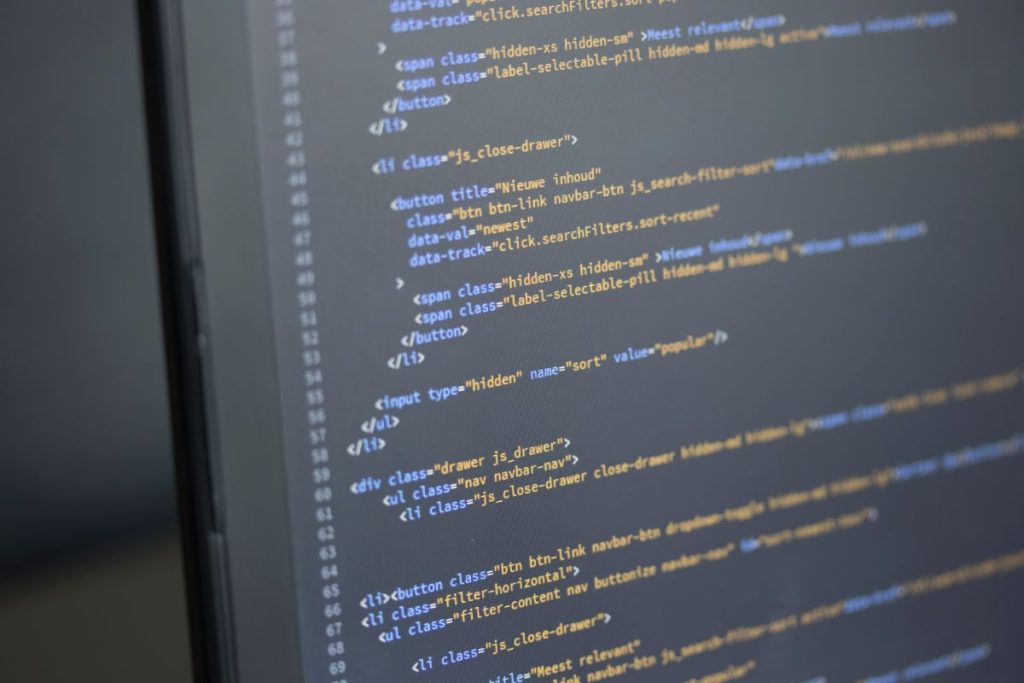Learning to code is often touted as a valuable and essential skill in today’s digital age. With the ever-increasing demand for software developers and the prevalence of technology in our daily lives, it’s no wonder that many people aspire to acquire programming skills.
However, the reality is that a significant number of individuals who have walked on this journey find themselves struggling or ultimately failing to learn programming.
In this article, we’ll explore why most people struggle with learning to code and look at 5 specific challenges they face.

Why Do Most People Struggle to Learn Programming?
Learning programming can be tough, and many people find it challenging for these reasons:
Unrealistic Expectations
One of the primary reasons why many people fail to learn programming is because of unrealistic expectations. Programming is often portrayed as an easily attainable skill that can lead to high-paying jobs and glamorous tech careers.
While it’s true that coding can open up exciting opportunities, to be proficient is often challenging and requires dedication and persistence. When aspiring programmers underestimate the complexity of the subject matter, they may become disillusioned when progress is slower than anticipated. This can lead to frustration and ultimately result in giving up on their coding.
Lack of Patience and Persistence
Learning programming demands patience and persistence. Coding errors, known as bugs, are an integral part of the learning process. Beginners may find themselves spending hours or even days debugging their code to find the root of the problem.
Without a strong commitment to working through these challenges, lots of people can quickly become disheartened and quit.
Success in programming is often a result of repeated trial and error, and those who are not prepared for this career path are more likely to fail.
Inadequate Learning Resources
The availability of learning resources has increased significantly in recent years, with countless online courses, tutorials, and coding boot camps. While this is a positive development, it also presents a challenge.

Not all resources are created equal, and beginners may struggle to find the right materials that match their learning style and pace.
Poorly structured or outdated resources can hinder progress and lead to confusion, making it difficult for aspiring programmers to develop a solid foundation.
Lack of Clear Goals
Without clear goals or a well-defined learning path, many people attempting to learn programming may find themselves adrift in a sea of information.
The programming landscape is vast, with numerous languages and specialisations to choose from. Failing to set specific goals or not knowing which area of programming to focus on can lead to a lack of direction and motivation. Consequently, many learners lose their way and abandon their programming enthusiasm.
Insufficient Support and Community
Programming is not a solitary pursuit. Having access to a supportive community of fellow learners and experienced developers can make a significant difference in one’s programming journey.
Unfortunately, some may lack this support system, which can leave them feeling isolated and overwhelmed. The absence of guidance and mentorship can hinder their progress and contribute to their failure to learn programming effectively.
Top 5 Challenges in Learning to Code
We have discussed why many people fail to learn programming due to factors like unrealistic expectations, a lack of patience, and inadequate resources. In the second part, we will dig a little deeper into the specific challenges learners could encounter while they are coding.
- Complexity of Programming Concepts
Programming involves dealing with abstract concepts, algorithms, and logical thinking. For beginners, this feels like a great wall of challenge. Many programming languages and frameworks have steep learning curves, making it difficult to understand the fundamentals. For example, Imagine trying to learn a new language without knowing its alphabet. Learning to code often starts with understanding fundamental concepts like variables, loops, and conditionals, which can be as confusing as learning a new alphabet.

- Syntax Errors and Debugging
Coding often feels like solving a puzzle, but it comes with its own set of frustrations. Syntax errors, which occur when code violates the rules of a programming language, can be a constant source of frustration. Think of coding like writing a story with missing words and sentences. When you make a mistake in your code, it’s like having missing or incorrect words in your story. You must figure out what’s missing or wrong to make your code work.
- Project Management and Scope
As learners advance, they often attempt to build real-world projects to apply their skills. However, project management can be a significant stumbling block. Many beginners struggle with defining the scope of their projects, setting realistic goals, and managing their time effectively just like trying to build a house without a blueprint. This can result in overly ambitious projects that become overwhelming, causing learners to abandon them.
- Impostor Syndrome
Impostor syndrome is a pervasive issue in the tech industry, and it can affect learners as well. Picture yourself in a room full of experts discussing a topic you barely understand. That’s how impostor syndrome feels. As a beginner coder, you might doubt your skills and feel like you don’t belong in the coding world.
This self-doubt can lead to a lack of confidence and motivation, making it difficult to continue their coding education.
- Keeping Up with Rapid Technological Changes
Technology evolves rapidly, and programming languages and frameworks are no exception. Staying up to date with the latest trends and best practices can be challenging, even for seasoned developers. For beginners, the fear of their skills becoming outdated or irrelevant can be a demotivating factor. The constant need to learn and adapt can be overwhelming, especially for those who are new to the field.
These challenges are like the twists and turns in an exciting adventure. They may seem intimidating, but with persistence, guidance, and practice, they’ll become easier and easier.
Nothing we cannot do, we are just not there yet.
Conclusion
Coding and programming can be hard, but it’s worth it. In the end, learning to code is not just about overcoming difficulties; it’s an exciting journey of personal and professional development. It’ll change your point of view in life, structure your mindset, and organise the way you’re thinking!
With determination and the right guidance, you can apply this to everything you want to be, no matter whether you want to become a programmer, an F1 driver, or even a pilot, determination and the right guidance will take you there!






